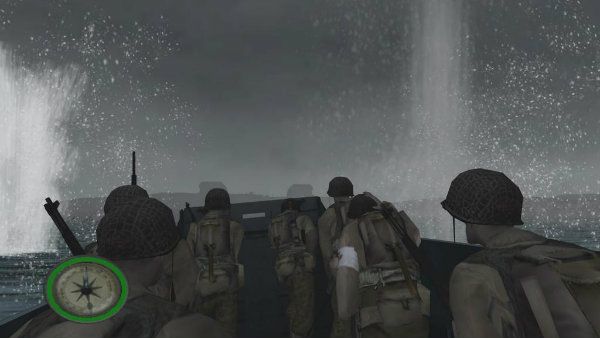This post has not been edited by the GamesBeat staff. Opinions by GamesBeat community writers do not necessarily reflect those of the staff.

December 7th means a lot to me. My brother's birthday is today, for one thing. It's just 10 days before my own, too. But mostly I remember December 7th because it's the day that an attack on the naval base at Pearl Harbor, Hawaii, drew the United States into World War II.
In 2001, my high school band traveled to Honolulu to represent both our state and our namesake vessel, the USS Utah, as part of the 60th anniversary of Pearl Harbor Day. Some of those experiences — visiting the Punchbowl National Cemetery, marching in a parade in downtown Honolulu, and especially playing a concert on the dock just feet away from the sunken wreckage of the Utah — will stay fresh in my mind forever.
Days like today make me miss the bygone era of World War II shooters, especially Medal of Honor, the progenitor of the Call of Duty series. And one of the biggest things I miss is the music, largely provided by composer Michael Giacchino.
[youtube http://www.youtube.com/watch?v=f34U-D5ubeQ]
You've probably heard Giacchino's music, even if you don't know the name. He has scored some of the biggest Hollywood and television hits of recent memory, including The Incredibles, the 2009 Star Trek reboot, and Lost.
But long before he was creating melodies for Captain Kirk and Jack Shephard, Giacchino worked in video games. And his work on Medal of Honor (and, later, the original Call of Duty) stands as some of the most cinematic scoring in gaming history.
[youtube http://www.youtube.com/watch?v=X-r1pXmlDxE]
While 1999 had plenty of heavy hitters soundtrack-wise — Final Fantasy VIII and Chrono Cross, to name just two — Giacchino's work may have done more than anything else to show that video games were a valid medium for Hollywood composers. He proved that movie-quality soundtracks were more than just a possibility for games. They were becoming necessary.
Since then, Hollywood musicians like Bear McCreary (Battlestar Galactica, Dark Void), Harry Gregson-Williams (Metal Gear Solid 2, The Chronicles of Narnia) and even Trent Reznor, who wrote and performed the main theme for Call of Duty: Black Ops II, have found success in writing video game soundtracks.
The World War II shooter genre (if you can call it that) has long since burned itself out, but Giacchino's compositions remind me both of the history of my country and the progress of my favorite pastime.
